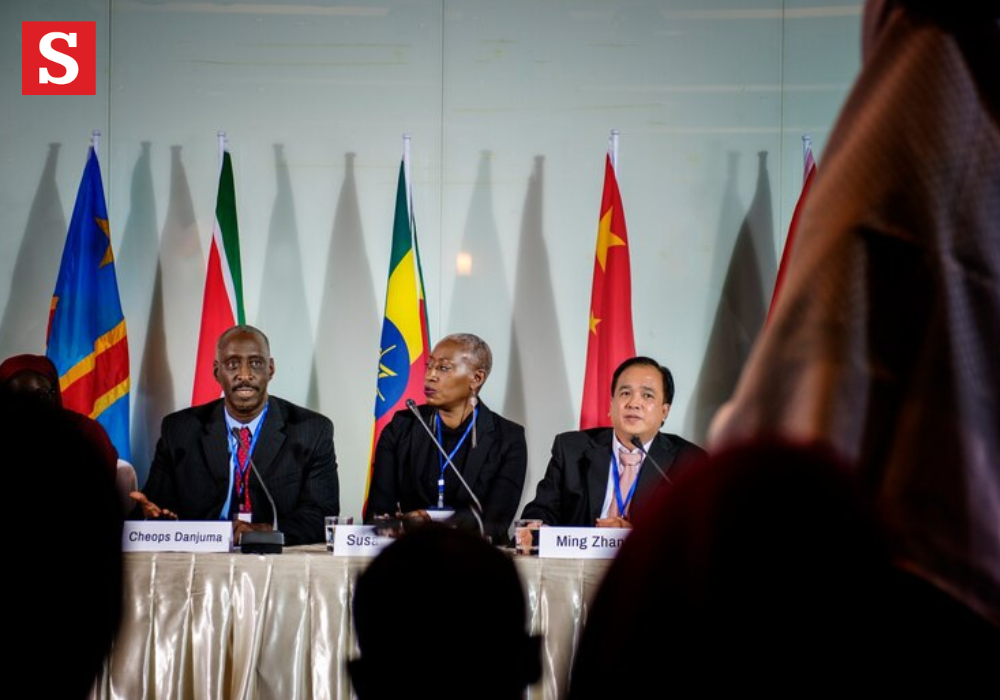The People’s Liberation Army (PLA) has seen its upper ranks affected by a recent wave of anti-corruption campaigns, including the current investigation of Dong Jun, China’s Defense Minister. There has not been any other instance, this quickly after the previous two, when defense ministers have found themselves embroiled in corruption scandals, which makes this development within one of the branches of the Chinese military particularly important.
Background of the Investigation
Former Chinese Defence Minister Li Shangfu’s demise from office came over suspicions of corruption after only 7 months. He recently succeeded Wei Fenghe, who also had to be expelled from the Communist Party for similar charges. Such allegations of corruption tend to encapsulate serious concerns about the leadership of the armed forces in China. Recently Dong Jun, the newly appointed minister of Defence, was reported to be investigated by the Financial Times over suspected corrupt practices. However, the reporters did not provide any detail on what exactly were the allegations against him.
Xi Jinping’s anti-corruption campaign appears to have reached new levels as several members of military top brass and defense industry heads have been sacked. Reports confirm that over nine PLA generals and several heads of businesses in the defense sector were removed over a period of approximately one year. It depicts Xi’s will to combat political corruption on an unprecedented scale, yet it draws attention to the chaos one might expect in military command. Schorments have been made defining how such investigations can hamper military capability and critical thinking age. This is particularly alarming in relation to Taiwan and general regional stability, given China’s aspirations in that regard.
The Broader Context
The inquiry into Dong Jun is consistent with another focus of Xi’s leadership, which is the rate of efforts made to root out corruption within the PLA. The focus is not merely on sanitising the armed forces but also on reinforcing Xi’s authority by removing regard for any potential challengers within the structure. Therefore, experts envisage such action against people interrogated and arrested of such incorrect actions, which will cause further disorder in military operations and even military planning.
Mentioned observations are in a sense concerning China very much as this may influence China’s dexterity in using its military resources and strength of what breathes very confidently throughout the world about China’s readiness for the Taiwan invasion, so believed to be achievable by the year 2027. The endless crisis in the PLA is thought to be raising concern regarding whether the organization has the resources needed to execute operational commands in the presence of deep fission within the organization together with transitions of leaderships.
Recent Developments
To begin with, a singular event happened in late July during Dong Jun’s recent trip to Laos where he met with the Asean defense ministers that necessitated investigation. When asked to meet US Secretary of Defense Lloyd Austin, Dong Jun refused. This disregard was ascribed to the backdrop of China regards U. S. arms sales to Taiwan as instigation. This political disgrace was also termed regrettable by Pentagon officials, indicating that although a slight thaw may have occurred in the US-China military relations under Dong, more so irresolvable antagonism still exists.
In its statement, Mao Ning refuted everything regarding Dong’s investigation and described it as “making the hare of the dragon-chasing”, implying there was no basis for such claims. This bold denial though is in stark contrast to the previously held position by officials regarding other similar accusations concerning Dong’s predecessors which raised alarm signs on incidence of any accountability and openness within the Chinese political system.
Implications for Military Leadership
The recent corruption scandals that have engulfed high-ranking officials such as Dong Jun show glaring weaknesses in the defense structure of the Chinese Armed Forces. Considering the fact that three consecutive ministers of defense were implicated in malpractice, the efficiency of an internal check and the state of affairs within the PLA are called into question. It is said that this condition may bring about the lack of coherence in military policies and sources of decision-making which will, in turn, be very detrimental to the strategic priorities of China.
Moreover, some experts stress that such probes can serve as an indicator of key problems within the PLA’s culture and operational capabilities. As it is very likely that this scenario developed due to corruption, many will be watching what further developments occur and what this means for China’s military posture regionally and globally.
Conclusion
The case against Defense Minister Dong Jun provides an insight into China’s current efforts at eradicating corruption from the ranks of its military which has remained a thorn in China’s defenses. The succession of such events is in fact crucial to Xi Jinping in his determination to eliminate corruption in not just Dong but the PLA as a whole. Considering the composition of mandates in geopolitics around Taiwan and US-China relations, such a situation also deserves attention from both analysts and policymakers.The efforts of China in trying to maneuver through such situations are in so many ways guided by the end goals of the investigation in question, they are not simply about making someone and individual accountable for their wrong doings; they have an impact on many aspects of governance, military capabilities, and security as the world becomes more dynamic.





1 Comment
Pingback: What Kash Patel Has Said About Releasing Diddy List, Jeffrey Epstein Flight Logs - still news hub